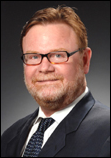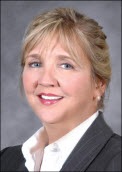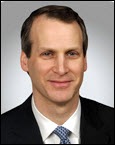The article about Pediatric Associates in CA has a nugget with a potentially outsized impact: the implication that VFC vaccines…
EMR Vendor Executives on HITECH – Part One of a Series
We asked several vendor executives a series of five questions related to the economic stimulus as it impacts electronic health records.
What changes will your company or area make, both for the short and long term, in preparation for HITECH legislation?
Allscripts – Glen Tullman, CEO
Within hours of President Obama’s signing of the American Recovery and Reinvestment Act, Allscripts began a process of educating the market on the HITECH elements of the Act. Our outreach included a series of webcasts (such as one this week with Glen Tullman and Newt Gingrich), a new website (www.allscripts.com/thetimeisNOW), a white paper, and a variety of other tools that help physicians better understand the implication of the new programs on their practice. Additionally, we will soon be introducing innovative new pricing oriented around the Stimulus. And you can expect to see major new Allscripts announcements related to the Stimulus very soon as we ramp up our national program to help physicians take advantage of the HITECH incentives to enter the Electronic Healthcare Highway.
Internally, Allscripts continues to hire new people as the need arises, with every expectation that the Stimulus will drive significant new hiring down the road. From a development standpoint, we expect to accelerate our efforts around interoperability and connectivity, ensuring our clients are ready to connect.
Overall, it’s important to keep in mind that there are already compelling reasons to start using an EHR today, with very significant financial incentives from the Centers for Medicare and Medicaid Services (CMS) for electronic prescribing as well as the CMS Physician Quality Reporting Initiative (PQRI) and other pay-for-quality programs from many local health plans. These existing financial incentives enable physician practices to start generating new revenue streams today, even before the HITECH incentives kick in – good news in these difficult economic times.
athenahealth – Jonathan Bush, CEO, President, and Chairman

We have already been in the process of developing an extensive clinical content team much like our payor rules team that will update, qualify, and build various clinical quality measures directly into our national EHR platform allowing all of our clients using athenaClinicals to more easily participate in whatever pay-for-reporting program is developed for the HITECH Act but also as more commercial insurers launch P4P programs. athenahealth’s analyst teams already today help practices capture and report for these programs unlike traditional software, whether it’s client server or hosted, the burden is on the end user to use various functionality in an attempt to participate. We believe this is why so many medical providers had frustration attempting to report out for PQRI using software-only systems. In contrast, 100% of athenahealth clients that participated in PQRI received their bonuses. The government’s incentive program will only further the need to innovate network-based services that medical groups will need to leverage moving forward.
eClinicalWorks – Girish Kumar Navani, President
eClinicalWorks is holding regular meetings with the department heads to forecast the staffing needs of each department. New employees were starting even before the stimulus, but we are hiring more aggressively now. We are also looking for ways to streamline processes to ensure that we are running as efficiently as possible.
Eclipsys – Tom Cooke, VP and GM of Eclipsys Practice Solutions
Eclipsys, the Outcomes Company, is excited about new sources of funds coming into HCIT from the Federal Government, and believes that it will stimulate even greater market demand for Eclipsys solutions. Our mission to maximize client return on investment while delivering improved patient outcomes mirrors the goals expressed by the administration and will not fundamentally change our corporate strategies. As such, we continue to assist our clients with the following:
- Automate as many endpoints with Eclipsys solutions as practical, and as quickly as possible. From the ICU to the family practice, from the ED to the laboratory shop floor, Eclipsys provides world class automation, extraordinarily high adoption rates, and measurably superior outcomes for our clients.
- Design interoperability into every portion of our solution portfolio. While some of our competitors strong arm providers to automate every community endpoint with their solutions, we recognize that widespread IT adoption means supporting a realistic, heterogeneous environment. Each of our solutions has a multiplicity of ways to interoperate with other solutions and technologies, and we have introduced our Health Information Exchange technologies to provide this community interoperability at the lowest cost, and highest degree of effectiveness possible.
- Work seamlessly with the interoperating community of stakeholders to monitor performance, identify and eliminate waste and duplication, and improve financial and operational performance through revenue optimization and cost reduction.
- Transform practice at the point of care by integrating evidence-based medicine into daily clinical processes through knowledge-based and decision support solutions.
- Introduce and monitor performance of evidence-based medicine throughout the community through the instantiation of protocols and pathways published in peer reviewed literature.
- Amass, normalize, and research clinical, operational, and financial data in order to allow our clients to further contribute toward the evidence-based medicine available.
eMDs – Michael Stearns MD, President and CEO

e-MDs is preparing for very significant growth in all areas of the company, including training, support and ASP hosting services. We have committed significant resources towards educational efforts related to HITECH and the other HIT related provisions in ARRA. This company has accelerated efforts to strengthen alliances and partnerships with other organizations, academic centers and government agencies. We are also working directly with communities interested in developing HIT regional extension centers.
Greenway – Wyche “Tee” Green, President
In the short term, we are paying close attention to any developments that will impact both our customers and our company, such as the definition of “meaningful use” and the final certification process, which we hope will align with CCHIT as much progress has been made during the last three years. We recognize that Greenway will continue to experience rapid growth and that’s something our team is prepared for.
MED3OOO – Jay Anders, M.D., Chief Medical Information Officer
MED3OOO is well positioned to help our clients, both physicians and hospitals, to maximize their potential with the stimulus bill. In the short term, we are working with current clients to help them analyze their qualification status and to make sure they meet the meaningful adoption criteria to qualify them for the incentives. In the long term, we believe there will be a “gold rush” of prospects looking for systems to be quickly implemented and meaningfully adopted.
Remember that the greatest incentives are offered to physicians who implement EHRs in (or before) 2010. Typical in-house EHR implementations can take six-to-nine months, with additional time before and after spent in preparation, negotiations, training, and implementation. That doesn’t give physicians much time to get ready. MED3OOO’s Software as a Service (SaaS) implementation and InteGreat EHR’s browser-based deployment allow our customers to be “live” on their EHR in less than half the time required by traditional EHR product installations. Also, through the SaaS service model, monthly service fees can be paid entirely using the HITECH incentive payments.
Lastly, it’s important to note that the legislation wisely rewards, not the installation of EHR technology, but the effective use of that technology. MED3OOO has its roots in practice operations, and we’ve used this expertise to design and implement technology in ways that physicians can use to improve outcomes for their practices and their patients. Our InteGreat EHR, for example, gets high marks for its “intuitive” interface and the ease with which it can be effectively installed and utilized. We believe that a collaborative approach with physician practices, and a grounding in the operational requirements of those practices, will be essential factors in the successful implementation of EHR systems.
Medsphere – Mike Doyle, CEO
Like many health IT providers, Medsphere is preparing intently for the impact of federal healthcare IT legislation. We are anticipating some sort of certification requirement and developing accordingly, and we recently finalized a services partnership with maxIT and conducted the first session of Medsphere University to get them up to speed with OpenVista and the Clinical Transformation it enables.
We’re also preparing for the legislation by tailoring a solution that fits within the parameters (time and money) of the federal program. Medsphere is better prepared than many other health IT companies to enable full funding for hospitals when money becomes available. We’ve implemented OpenVista in anywhere from 5 to 18 months, depending on the specifics of the implementing hospital, and we’ve developed a process that incorporates a great deal of flexibility. Medsphere has demonstrated that we can implement an interoperable solution incorporating all necessary clinical functionality for roughly ½ the cost and in 1/3 the time of other solutions. We can implement a system for the amount of money available to hospitals. A lot of other healthcare IT provides can’t say the same.
NextGen – Patrick Cline, President
There are several ways to answer this question. First, with respect to the legislation, its interpretation and the surrounding process: Things are still evolving and, at this point, information is still incomplete. To help keep our customers current, we have developed a microsite, http://www.nextgen.com/stimulus/ that presents our current understanding of the legislation, regularly updated pertinent information and a set of Frequently Asked Questions (FAQs). We have also started a series of educational webinars discussing the legislation, as well as services we are offering providers who are using or have decided to select NextGen solutions.
With respect to the long term, we think we’re well positioned product-wise, but we continue to work on our ability to scale the company and train the new customers that we hope will come at an increased rate. We intend to open additional training centers, enhance our computer-based training programs and make our software even easier to use.
QuadraMed – Keith Hagen, President and CEO
As a result of the ARRA, QuadraMed is now extremely focused on having our enterprise clinical product, QCPR, meet the to-be-determined NIST certification criteria. In lieu of these criteria being formally defined, we are using the CCHIT criteria as a target. We feel we meet the majority of these criteria today but are fast-tracking other development projects around advanced clinical decision support and CDA/CCD support. Additionally we are working on extending our integrated medication management functionality to support areas like e prescribing. Our plan is to be in a position to submit QCPR for certification by Spring 2010.
Sage – Lindy Benton, Chief Operating Officer
In the short term, we are investing in service infrastructure, employee education and reevaluating processes to become more efficient and proactively prepared to respond to the increased demand for solutions and service. Additionally, over the past two years, we’ve invested in technologies that reduce implementation efforts for both the customer and Sage – so we can quickly meet market demand without large increases in human capital.
We’re also optimizing our portfolio of intellectual property and services – ensuring we offer the right value to our customers. For example, we are launching a Center for Knowledge Excellence organization that will provide optimization and education services. These services will wrap around our products and help practices become more efficient and achieve specific clinical goals and outcomes. We want our customers to leverage the products to create maximum value and, specifically, to assist practices in achieving the “meaningful use” standard.
Even with these efforts, it is expected that we will most likely need to increase our human capital investment over the longer term.
SRSsoft – Evan Steele, CEO
Why should we change? We challenge ourselves with this question every day. Why would we abandon our focus on efficiency, usability, and 100% successful implementations? We have yet to be given a compelling case to do so, even with all the incentives being dangled before practices. In fact, why does the industry need incentives to implement technology at all? If traditional EMR offered such great benefits to patients, physicians, and the medical ecosystem in general, why has adoption been so slow and been marked by so many failures? Will incentives provided by the government for these same EMRs result in a different outcome?
The hybrid EMR has significant advantages over what we are calling the “government” EMR in terms of speed, ease of use, and adoptability. It successfully provides ePrescribing and PQRI capabilities, robust reporting, and data management functionality, and it also enhances practice workflow and physician productivity. SRS will continue to listen to exactly what our physicians want and to develop features that make them more efficient and enhance their ability to deliver high-quality patient care.
We refuse to pour resources into developing overly complex products when we know that physicians do not find these types of products usable. Sadly, this is the path that CCHIT has followed, as a reading of the CCHIT criteria reveals. At SRS, we have the voice of the physician built into our software, which has led to a level of user satisfaction that is the highest in the industry by a wide margin, as validated by KLAS.











Nice writing. You are on my RSS reader now so I can read more from you down the road.
Allen Taylor
A friend of mine just emailed me one of your articles from a while back. I read that one a few more. Really enjoy your blog. Thanks
When all is said and done, much is said and little is done. It has been 25 years to get to this point. If it was just a matter of money, it would be done. Sorry to be cynical but this is healthcare afterall. The one industry where consequences do not tie to risk.
I believe the photo you have for Dr. Stearns, e-MDs, is incorrect. He’s much better looking.
Note from Inga: Thanks Mrs. Stearns. A thousand apologies. Fixing right away!
What does the HITECH act do for mental/behavioral health services. Does this package apply to them??
Of the whole group, Evan Steele, CEO of SRSsoft seems to be the most realistic thinker.
The vendors’ responses are fascinating, but there is one thing missing. Nobody said anything about Privacy. The privacy aspects of the legislation are extremely important and will cause vendors to make changes.